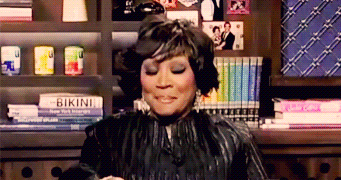New Trolling Standards & Guidance
Apr 18, 2015 16:29:04 GMT -5
Post by K. on Apr 18, 2015 16:29:04 GMT -5
Taking into account recent suggestions and feedback from members, staff has come up with the following proposed, expanded standard and guidelines for the types of behavior that constitute trolling. This standard attempts to balance, as fairly and clearly as possible, the interests and rights of Pulse's broad community, the interests of the board itself in maintaining a degree of professionalism, and the need for both consistency and adherence with overarching Proboards policy, over which we have little control.
The chief difficulty in enforcing trolling rules is to decipher between posters whose aim is to share their opinions (positive or negative) from those who intend to shame, silence, or harass those who have different opinions than themselves. These rules attempt to help with that.
Feedback is encouraged. There will likely be additional discussions in the future.
Trolling
Trolling is defined as:
Guidance
The first element, above, makes clear that the prohibition on trolling applies to any message or communication on Pulse, not just posts.
The key element of trolling is an intent to upset, disturb, or derail (as compared to an intent to share or explain an opinion). Intent will be inferred from the surrounding circumstances. One thing staff will consider is whether a "reasonable poster" (aka, an objective, unbiased poster) would be upset or disturbed by the post. Generally speaking, posters should not be "upset or disturbed" by negative opinions of an artist or work, whether they are posted in a general or artist-specific thread. Nor should a poster be "upset or disturbed" when their opinion on an artist or work is challenged. Posters have the right to have, share, and defend their own opinions, and to challenge the opinions of others.
That said, repetitively abrasive, combative, or negative behavior can be "upsetting or disturbing," or derail a thread. An intent to troll can be inferred from such behavior. In an artist-specific thread, this type of behavior includes (i) repeatedly and solely bringing up negative news; or (ii) consistently attacking anyone who expresses a negative opinion. Both fans and non-fans can engage in trolling. Absent other circumstances indicating intent to troll, the repetitive behavior must be obvious and substantial.
Examples of behavior that indicates intent to troll:
The final element makes clear that in making decisions, staff will take into account the likelihood that the message could lead to substantive, on-topic discussion. Whether a message actually derails a thread is not determinative.
The chief difficulty in enforcing trolling rules is to decipher between posters whose aim is to share their opinions (positive or negative) from those who intend to shame, silence, or harass those who have different opinions than themselves. These rules attempt to help with that.
Feedback is encouraged. There will likely be additional discussions in the future.
Trolling
Trolling is defined as:
- A message (including a post, series of posts, PM(s), image(s), title(s), status(es), or signature(s)),
- posted with the intent of upsetting or disturbing another poster, or derailing a thread,
- in a manner or under circumstances unlikely to encourage substantive, on-topic discussion.
Guidance
The first element, above, makes clear that the prohibition on trolling applies to any message or communication on Pulse, not just posts.
The key element of trolling is an intent to upset, disturb, or derail (as compared to an intent to share or explain an opinion). Intent will be inferred from the surrounding circumstances. One thing staff will consider is whether a "reasonable poster" (aka, an objective, unbiased poster) would be upset or disturbed by the post. Generally speaking, posters should not be "upset or disturbed" by negative opinions of an artist or work, whether they are posted in a general or artist-specific thread. Nor should a poster be "upset or disturbed" when their opinion on an artist or work is challenged. Posters have the right to have, share, and defend their own opinions, and to challenge the opinions of others.
That said, repetitively abrasive, combative, or negative behavior can be "upsetting or disturbing," or derail a thread. An intent to troll can be inferred from such behavior. In an artist-specific thread, this type of behavior includes (i) repeatedly and solely bringing up negative news; or (ii) consistently attacking anyone who expresses a negative opinion. Both fans and non-fans can engage in trolling. Absent other circumstances indicating intent to troll, the repetitive behavior must be obvious and substantial.
Examples of behavior that indicates intent to troll:
- insulting another poster's favorite artist instead of responding to the poster's point (on-point comparisons are allowed, but it is a fallacy to argue that because someone likes Artist X, what they are saying is not true);
- Calling artists derogatory names or mocking them on a personal level, especially where inserted as a dig while making an unrelated point (e.g., X posts picture of himself riding a donkey and Y replies "Hey, you met ______!"; X writes "That b***h _____ with her ugly face just released a new album"). Discussions of image or criticisms of behavior are permitted where they are in reaction to a particular event and not designed to insult the artist generally (e.g., comments like "I'm afraid _____'s weight gain will hurt her sales" or "she looked like a giant banana in that performance," or "in light of recent events, ______ seems like a total jerk/racist")
- Suggesting (explicitly or implicitly) that someone is an idiot or delusional just because they have a different opinion (to avoid an inference of intent to troll, explain why they are wrong)
- Posting messages that appear to celebrate violence or use exceedingly vulgar or violent language.
The final element makes clear that in making decisions, staff will take into account the likelihood that the message could lead to substantive, on-topic discussion. Whether a message actually derails a thread is not determinative.











